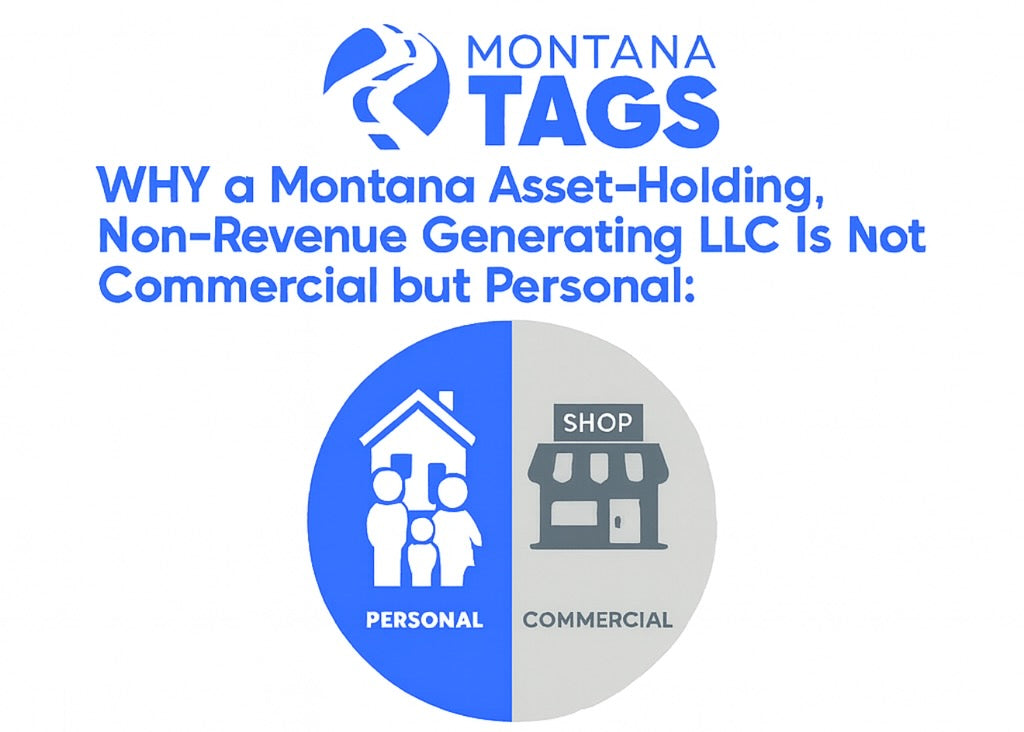1. Overview of a Holding Company
A holding company is a legal entity—often formed as a Limited Liability Company (LLC) or corporation—whose primary purpose is to own and manage assets rather than engage in active business operations.
• These assets may include real estate, vehicles, investments, intellectual property, or ownership interests in other businesses.
• The holding company does not typically sell products, provide services to the public, or generate revenue through business transactions.
2. Personal vs. Commercial Entities
The distinction between personal and commercial lies in the nature of the activities:
• Commercial Entity – Actively engaged in trade, sales, manufacturing, or providing services for profit.
• Personal (Non-Commercial) Holding Company – Exists solely to hold, protect, and manage assets for the benefit of its owners (often an individual or family). It is not engaged in active revenue-generating operations.
When an LLC is used solely for holding personal or family assets, it is classified as personal because it serves a private ownership function, not an ongoing commercial enterprise.
3. The Montana Context
Montana allows LLCs to be formed for asset-holding purposes, and these entities enjoy:
• Liability Protection – Shielding owners from personal liability related to the assets held.
• Management Flexibility – Owners decide how the LLC is run, without the rigid structure of a corporation.
• Favorable Vehicle Registration Laws – Commonly used for personal asset protection and administrative convenience, especially for vehicles, boats, and aircraft.
Importantly, a Montana LLC that only holds assets and does not operate as a business is not classified as a commercial entity.
4. Why a Non-Revenue-Generating LLC Is Personal
If an LLC:
• Does not advertise services or products to the public,
• Does not conduct regular business transactions for profit,
• Only holds assets for personal use or investment purposes,
then it is operating as a personal holding company, not as a commercial business.
The absence of active income-generating activities is the defining factor.
5. Asset Protection Role
One of the most common reasons individuals or families create a personal holding LLC is asset protection.
• It can help safeguard assets from potential lawsuits, creditors, or liability claims.
• The LLC serves as a legal “container” for assets, separating them from personal liability exposure.
6. Holding vs. Operating Companies
• Holding Company – Primarily manages and controls assets; does not sell goods or provide services.
• Operating Company – Engages directly in revenue-generating activities, such as sales, manufacturing, or service delivery.
A Montana personal holding LLC falls entirely into the first category.
7. Example Scenario
An individual creates ABC Holdings, LLC in Montana:
• It owns three vehicles, a piece of investment property, and a small stock portfolio.
• ABC Holdings, LLC does not sell vehicles, rent property commercially, or provide services for payment.
• All assets are for private use and investment management.
Result: The LLC is personal, non-commercial, and functions solely as an asset management tool.
⸻
Key Takeaway
A Montana asset-holding, non-revenue-generating LLC is personal because it exists to protect and manage private assets—not to engage in active commerce. While it may own valuable property or investments, it does not operate as a business in the traditional, revenue-producing sense.

